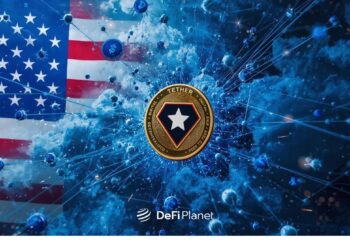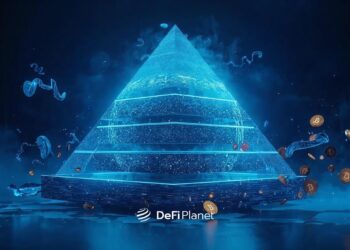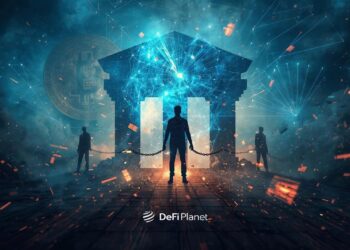Non-fungible tokens (NFTs) have brought about a transformative shift in the digital art and collectibles domain. Just like how Bitcoin was perceived as the revolutionary solution for digital currency on a global scale, NFTs are now positioned as an innovative response to the various problems plaguing the sector.
The concept of NFTs has garnered significant attention globally, and many people have questions about how to go about them. This article will answer some frequently asked questions (FAQs) about NFTs. Let’s get to it.
What is the difference between NFTs and Cryptocurrency?
The key difference between NFTs and cryptocurrencies is spelt out in the name. NFTs are ‘non-fungible’ while cryptocurrencies are designed to be ‘fungible’.

Although NFTs and cryptocurrencies have blockchain as their underlying technology, they are designed to do different things in different ways.
Cryptocurrencies are virtual currencies that use cryptography for security and blockchain technology for management, issuing and tracking. They are designed to be fungible, meaning you can swap one unit of a specific cryptocurrency with another unit of the same kind.
Meanwhile, NFTs are intended to represent digital or physical assets on a blockchain. Thus, every NFT is unique, and its value is subjective; it relies on factors like rarity, desirability, and uniqueness of the digital or physical item they represent.
Unlike NFTs, a cryptocurrency’s value doesn’t rely on the uniqueness of a digital item but rather on the value and usefulness of the blockchain technology it’s based on. The value of cryptocurrencies is determined mainly by market forces like supply and demand, investor sentiment, and overall market conditions. Their prices can change a lot in a short time, making them a highly volatile asset class.
In summary, cryptocurrencies are used to store and exchange value digitally. They are alternatives to traditional fiat currencies, allowing safe, direct transactions without banks or intermediaries. Instead, they are managed on a public blockchain.
On the other hand, NFTs confirm ownership and origin of digital or physical assets, such as art, music, videos, virtual property, and in-game items.
Are NFTs a Good Investment?
NFTs are unique digital assets that have the potential to increase in value, making them a popular choice for short-term investments. However, there is still much debate about whether or not they make good investments, as their value depends on specific use cases.
As NFTs are a relatively new technology, they do not have the widespread recognition and understanding of more traditional investments, which introduces a level of risk that is common in any investment.
While having more information and experience in investing can certainly improve outcomes when dealing with NFTs, it’s important to remember that it doesn’t guarantee profits. It’s wise for anyone considering investments, including NFTs, to seek professional advice first.
What Are The Risks Associated With NFTs?

It’s important to keep in mind that the value of an NFT can fluctuate like any other investment, and there’s no guarantee that it will consistently increase. The NFT market is relatively new, and its future development is still uncertain. As such, it’s important to be aware of some of the risks associated with investing in NFTs.
One risk factor to consider is that an NFT’s value is tied to the cryptocurrency it’s associated with. For example, if an NFT is linked to Ethereum, any changes in the price of ETH will directly affect the NFT’s value. So, if you bought an NFT for 1 ETH when ETH was priced at $4,000+, and now the price of ETH is $2,041, your NFT’s value will have decreased. This dependency on another market can create volatility and uncertainty for NFT investors.
Another risk is the potential for fraud, copyright violations, counterfeit stores, and impersonation of NFT artists. As NFTs gain popularity, cyber attacks on the NFT market are increasing. Malicious actors create fake versions of entire NFT stores online to deceive unsuspecting buyers, impersonate well-known NFT artists, and sell artworks as if the authentic artist created them. This can lead to financial losses for investors.
There is also a risk of theft due to vulnerabilities in smart contracts within a blockchain network. The recent Poly Network hack, where $600 million worth of NFTs were stolen, is a clear example of this risk. Weak security in the smart contract provided an entry point for attackers, demonstrating how software flaws could jeopardize NFT networks.
Lastly, because NFTs are a new and rapidly growing type of asset, the regulations governing them are still unclear. Governments might choose to regulate or prohibit NFTs, potentially affecting their value. Therefore, it’s crucial to carefully weigh the potential risks before investing in NFTs.
Can NFTs Be Used Beyond Art and Collectibles?

Absolutely! NFTs, although often linked to digital art and collectibles, have a wide range of applications across various industries. Here are some examples of how they go beyond art and collectibles:
- Gaming: NFTs are currently used in game development to represent in-game items like weapons and characters. They open up possibilities for new gaming experiences where players can own and trade virtual assets.
For instance, games like CryptoKitties, Axie Infinity, Sandbox 3D, Splinterlands, Battle Racers, Star Atlas, etc, allow players to buy, sell, and breed virtual items as NFTs.
- Fashion: NFTs can be used to represent digital versions of fashion items like clothes and accessories, which people can buy, sell, and trade. Fashion companies also use them inventively, like virtual fashion shows, to serve their customers in exciting ways.
For example, Luxury brands like L’Oreal, Louis Vuitton, Dolce and Gabbana, and Gucci are using NFTs to engage with customers and build loyalty. Yves Saint Laurent Beauté, a luxury brand under L’Oréal Group, launched an NFT platform in June 2022 to create more immersive customer experiences.
- Music: Artists can use NFTs to sell music and offer unique experiences to fans, such as exclusive content or meetings. American artist 3LAU earned nearly $12 million in just one day by selling his first NFT album to fans.
- Event Ticketing Events: NFTs can be used to generate secure and unalterable tickets for various events like concerts, sports matches, and conferences. These NFT tickets are easily transferable and serve as a way to confirm ticket authenticity. For example, WarnerMedia’s DC Comics handed out comic book NFTs with tickets for their DC FanDome event.
- Supply chain: NFTs can be used to track products through the supply chain, confirming authenticity and preventing counterfeiting. The Vechain NFT ecosystem is a prime example of this use case in action.
- Education: NFTs can be used to create secure digital certificates for education. They can also make learning more fun with gamified courses and virtual classrooms. Duke University and MIT have used NFTs to issue certificates and virtual credentials.
In Conclusion,
NFTs have brought about a major shift in the digital art and collectibles industry. They offer a new way of representing the ownership and origin of digital or physical assets.
However, it is essential to note that NFTs also come with certain risks, such as market volatility, fraud, and cyber attacks. Therefore, it is crucial to conduct thorough research and seek professional advice before investing in NFTs.
Despite the risks, NFTs have the potential for growth and are here to stay, as they could revolutionize several industries, including gaming, music, real estate, and education.
Disclaimer: This article is intended solely for informational purposes and should not be considered trading or investment advice. Nothing herein should be construed as financial, legal, or tax advice. Trading or investing in cryptocurrencies carries a considerable risk of financial loss. Always conduct due diligence.
If you would like to read more articles (news reports, market analyses) like this, visit DeFi Planet and follow us on Twitter, LinkedIn, Facebook, Instagram, and CoinMarketCap Community.
“Take control of your crypto portfolio with MARKETS PRO, DeFi Planet’s suite of analytics tools.”





















